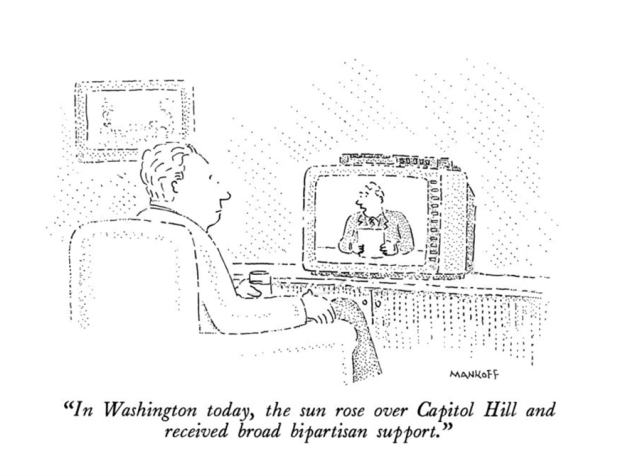Also: Depolarizing American politics with Steve McIntosh
I got a kick out of the following posting on an atheist website: “‘I’ll pray for you’ is a line that religious people say to get credit for doing something, when in reality they’re doing absolutely nothing.”
I’m not so sure, and I start the podcast by looking at how prayer and meditation may actually work to relieve other peoples’ suffering. If, as Ken Wilber says, “thoughts are things” – novel ontological objects in the kosmos that add to the evolving storehouse of consciousness – then prayer and meditation may be one thing we can do for those suffering in the ebola epidemic.
Insight into the power of prayer is of course nothing new to pre-modern people. Historically all religions, both theistic and nontheistic, have provided methods for interceding with divine powers for human benefit. Modernity came along and debunked these practices as superstitious hocus-pocus, and of course the baby went out with the bathwater.
Integral theory creates room to bring prayer back, and in the podcast I talk about some of the ways we can work with it, even without having to necessarily relate to God. Nontheistic Buddhist loving-kindness meditation, for instance, is designed to literally generate love and relief for other people.
Integral theory suggests that the movement into second-tier human consciousness is a recapitulation of the original awakening into first tier, when human consciousness arose out of the animal mind.
So at second-tier we are new babies again. And just as a newborn baby has to bite his foot a few times before he realize that it belongs to him, we are now waking up to new capacities that have been there all along.
One of these capacities is the power of our mind. But it’s a little tricky because it’s not our mind anymore; it’s access to a bigger mind, a bigger heart and bigger creativity that we surrender into. These new territories are not “ours” in the sense of belonging to our individual selves, but are the product of our increased access to the ever-present loving intelligence that is part of the basic fabric of the universe.
This has not been proved, as least not to the satisfaction of most scientists, but it is a good working hypothesis that can provide the basis for a trans-rational faith in the power of prayer and intercessory meditation.
Praying for those affected by Ebola isn’t the end of what we can do to help of course. We can vote, inveigh, donate — even, if qualified, don our hazmat suit and fly to West Africa. (I’m so impressed with the heroic people who are called there to risk their own safety for the welfare of others.) But praying isn’t a cop-out either. And it’s something we can do right now.
Chaos and politics
We human beings are, and always have been, failing forward. ~Jeff Salzman
I also address the shortcomings of the various institutions entrusted with responding to the crisis, including international medical organizations, the U.S. Center for Disease Control and the hospital in Dallas where an Ebola patient infected two other people. I see these failures less as an indictment of the incompetence of the institutions than as examples of the chaotic nature of life. Every first tier altitude of development has an idea of how the world should be, a steady-state of perfection where things are ordered according to, for example, the word of God (in the amber traditionalist altitude), or rationality (in the orange modern altitude), or the realization of oneness (in the green postmodern altitude). Actual reality always falls far short of the ideal and is subject to endless scapegoating and condemnation.
At second tier consciousness we begin to realize that we are part of a moving, evolving world that serially disappoints us at the same time it relentlessly accumulates more intelligence and capacity. We human beings are, and always have been, failing forward. Does anyone think that the next time Ebola or another infectious disease rears its head that we will make the same mistakes again? We’ll make new ones, but that’s progress!
Which is no reason not to use the chaos of an epidemic as a political sledgehammer, which is what we’re seeing as we approach the mid-term elections in America. I end this segment by showing how the party out of power, the Republicans in this case, are invested in creating a climate where the Democrats, particularly President Obama, is seen as incompetent in the face of a world that is falling apart.
And this leads to a surprisingly optimistic conversation about polarization in American politics…
“There’s a real upside to polarization”
A dialogue with Steve McIntosh of the Institute for Cultural Evolution
In the second half of the podcast I am joined by my friend and colleague, Steve McIntosh. Steve is one of the leading integral thinkers of our time, author of the seminal book Integral Consciousness, his latest book Evolution’s Purpose and his upcoming book The Presence of the Infinite.
Here we talk about another of his projects, the Institute for Cultural Evolution, a think tank he has created to put a stake in the ground for a new kind of politics based not on green centrism, but on cultural evolution and integration. I’m happy to be on the ICE’s Board of Directors, along with a stellar group of evolutionary thinkers, including John Mackey, founder of Whole Foods.

See past Daily Evolver posts with Steve McIntosh here, and find out more about ICE’s Indiegogo campaign here. Below are a couple of the best ideas that Steve explores in the podcast:
“Some people believe Americans aren’t really divided deep down, and that we’ve just been sorted by the hyper-partisans in the different parties. And then there are those that have a more evolutionary perspective that see that indeed there are at least three major world views in American culture, and they aren’t just differences of policy opinion. They are deep differences in identity dialectically separated by the structures of history.”
“There’s a real upside to polarization. The way evolution occurs, both culturally and individually, is that first there’s a kind of a differentiation and that differentiation allows for a higher level of integration. So rather than try and glue the pieces of Left and Right together, or create some kind of centrist compromise, we’re advocating further evolution to overcome polarization. We’re advocating for a kind of a Future Left and a Future Right that represent more evolved positions of this essential polarity.”
– Steve McIntosh
You can listen to the podcast below. Hope you enjoy!
Podcast: Download
Subscribe: Google Podcasts | RSS






